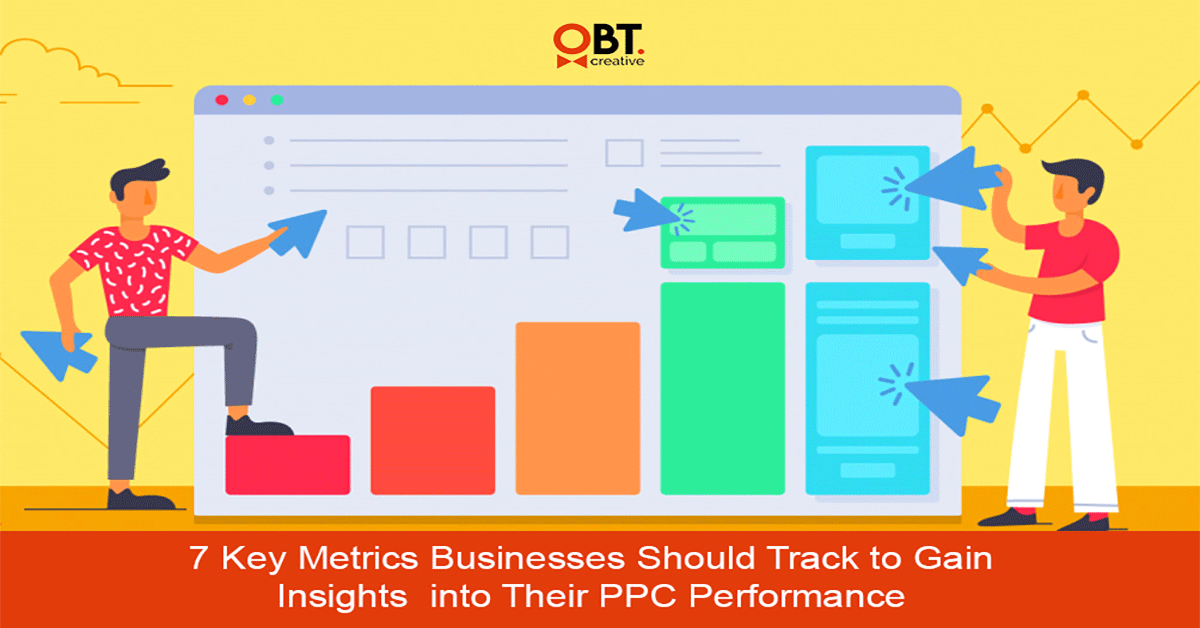You’ve finally launched a brand-new product.
You are super-excited to attract high-quality traffic to your website.
So, what you do is head over to advertising platforms and run targeted Pay-Per-Click campaigns.
Now, you wait for at least a month to learn whether the campaigns delivered the desired results or not.
To measure PPC performance, you log in to the advertising platforms.
But wait!
You’re now overwhelmed by a world full of PPC metrics.
Now, you are just confused and can’t really gain insights into your PPC campaign performance.
While you can review every single PPC metric in your dashboard, we think that’s not the smart move.
It’s similar to hopping onto Netflix to watch a movie yet being unable to decide. That’s because you’re just swarmed with various options right in front of you.
For every $1 you invest in PPC campaigns, you can expect an average return of $2.
But you need to do it right. You need to implement the right set of strategies to create highly converting PPC campaigns.
Most importantly, you should measure your PPC campaign performance to understand where you currently stand and whether your campaigns are delivering the desired results or not.
So, how can you measure the success of your PPC campaigns?
While you can’t possibly review all those metrics, you should track the most important ones. That’s the secret to running optimized and highly converting PPC campaigns.
This blog post lists out the seven most important metrics businesses should track to measure their PPC campaign performance.
Let’s dive straight into it.
7 Essential Metrics Businesses Should
Measure their PPC Performance
Here’s a list of essential PPC metrics:
- Clicks
- Click-Through Rate (CTR)
- Cost-Per-Click (CPC)
- Conversion Rate
- Revenue
- Return on Ad Spend (ROAS)
- Return on Investment (ROI)
Let’s touch down on each one of these PPC metrics one at a time.
Clicks
While measuring your PPC campaign performance, the first metric you need to track is “Clicks.”
Monitoring this metric will help you discover the number of prospects that clicked on your ad.
If the number is high, then the chances are that your PPC ad is brilliantly crafted. It’s enticing enough to catch your prospects’ attention. You may even choose to take a more aggressive approach in regard to your keyword bids. You may even allocate a higher budget and optimize the bid amount.
However, if the number is low, then maybe you need to work on your PPC ad. Maybe, your ad copy isn’t enticing enough. Or what if you are using the wrong keywords? You need to make sure that it addresses your audience’s pain points and catches their attention.
Alongside this, it’ll help you understand whether the PPC ad copy fits your prospects’ queries.
In addition to this, you need to make sure that you are reaching out to your users at the right time.
For example, if you an E-Commerce shop owner, then you can’t afford to miss out on running PPC campaigns during the holiday season. That’s when your potential customers are most likely to click on your ads and purchase your products.
But, if you run PPC ads on normal days, the number of clicks may be comparatively lower.
Click-Through-Rate (CTR)
The next in our list is Click-Through-Rate (CTR). It’s one of the most important metrics that will help you gain more insights into your PPC campaign performance. Most business owners and marketers confuse ‘Clicks’ with ‘Click-Through-Rate.’ But trust me, both these metrics are slightly different.
CTR = (Number of clicks your ad receives / Number of times its displayed) X 100
So, if your ad is displayed 10,000 times and only 500 people clicked on it, the PPC ad CTR is 5%.
If you are wondering what your PPC ad CTR should be, then I’d like to tell you that there’s no concrete answer for it. The answer to this question depends various factors like the industry you belong to, your PPC campaign type, and what you are offering to your audience.
Depending on the industry you belong to, if your PPC ad CTR is above your industry average, you’re doing good. Your campaigns are well-optimized.
However, if it’s below the industry average, you need to seriously optimize your PPC ads.
Cost-Per-Click (CPC)
It does not matter how badly one wants to attract high-quality traffic to your website; he/she need to keep your budget in check. What if you have a $10 daily ad spend yet are spending $1 per click? You may exhaust your daily PPC budget within a few minutes.
Cost-Per-Click is the amount you’re paying for each click.
CPC depends on various factors like:
- Quality Score: Google takes into consideration different factors like ad relevancy, CTR, and more to determine the quality score.
- Ad Rank: Google considers the auction-time ad quality and bid amount to determine your ad rankings. Let’s say you place a $0.5 bid per ad click, which is way lower than what your competitors’. In that case, the chances of your ad popping up at the top are slightly lower.
- Maximum Bid: Maximum Bid represents the highest amount you are willing to spend when a person clicks on your ad.
Target high-volume, low-competition keywords. High-competition keywords have a much higher CPC.
So, if your PPC ad CPC is low, then you are on the right track. However, if you are paying too much per click, then you need to optimize your ads.
Conversion Rate
What if you are attracting thousands of people to your website yet have an extremely poor sales number? The whole point of investing thousands of dollars in paying ads is to convert as many of your website visitors into paying customers.
Conversion rate refers to the ratio of the number of people who took the desired action and the ones who clicked on your PPC ad.
Tracking this metric will allow you to understand how often an ad click turns into a sale.
A higher conversion rate implies that the ad content actually matches your target audience’s needs. Also, it helps you understand whether you have a converting sales funnel in place or not.
On the other hand, a low conversion rate means that you need to focus on your landing page, ad copy, sales funnel, or other aspects that can help you bring your prospects further down their buyer’s journey.
Revenue
This PPC metric will help you gain insights into whether your current PPC campaigns are aligned with your future revenue goals.
For example, if you are an E-Commerce shop owner and project a $100,000 monthly revenue in the next year, you need to make sure that your month-on-month is going up rather than going down.
Any gaps in your online presence may tamper with your goals.
Tracking this metric will help you understand whether the revenue generated from your PPC campaigns aligns with your future business goals.
Most importantly, you can calculate your Return on Ad Spend & Return on Investment with this metric.
Return on Ad Spend (ROAS)
Return on Ad Spend can be calculated by dividing your revenue by your PPC spend. This metric will help you project a high-level overview of your current ad campaigns.
Let’s say your online store generates $100,000 monthly revenue. And if you spent $5,000 on paid ad campaigns, then your ROAS is 2000%.
This metric will help you understand whether the amount you are spending on your PPC campaigns is actually driving the expected value or not.
Return on Investment (ROI)
ROI & ROAS aren’t the same things.
ROAS just takes into consideration the amount you spent on PPC ads. Whereas ROI takes into consideration various costs like monthly ad spend, tools, employees, and more.
Return on Investment (ROI) helps you dive deep into whether your actual business model is driving profits or not.
Let’s say your monthly ad spend is $5,000, and you’re paying a combined $20,000 monthly salary to your PPC department. And if your business is generating $20,000 revenue each month, then your ROI is extremely poor.
Tracking this metric helps you gain insights into your campaign’s overall profitability.
Measure Your PPC Campaign Performance Today!
– Peter Drucker
Measuring your PPC campaign performance is crucial.
Maybe, you are wasting your top dollars on poorly optimized campaigns. Or what if you are targeting the wrong keywords?
While you monitor your PPC ad campaign performance, you may hate the results. But, in the end, you’ll be able to understand whether your campaigns are delivering the desired results or not.
If your PPC ads are subject to a low ROAS or ROI, you need to optimize your campaigns. Otherwise, you are just wasting your precious marketing budget.
And if you need any help, feel free to reach out to our dedicated PPC experts at OBT Creative today.



